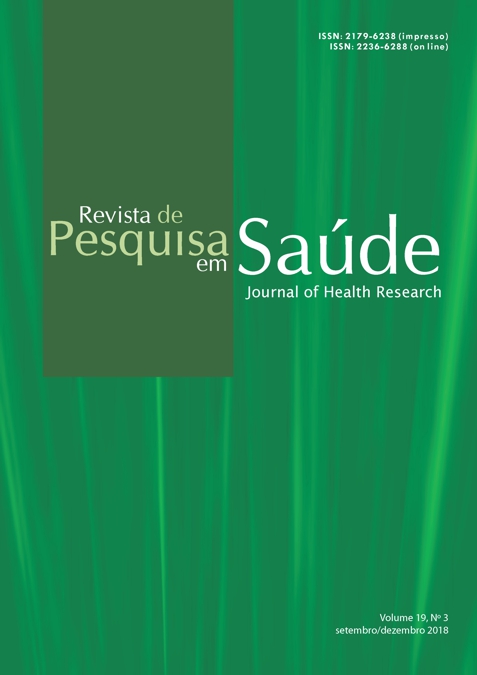SCREENING ELDERLY PATIENTS FOR COGNITIVE FUNCTION AT A REFERENCE CENTER IN NORTHEAST BRAZIL
Resumo
Introduction: Both demographic and epidemiologic transitions experienced by the country in the past decades bring a number of crucial issues for the health care system, especially in the context of severe social inequality, poverty and fragility of institutions. Objectives: To identify the cognitive profile of non-institutionalized elderly outpatients seen at a reference center in São Luís, Brazil. Methods: Cross-sectional study conducted in a reference center in São Luís, MA, Brazil. Final sample consisted of 102 individuals. Inclusion criteria were: age equal to or over 60 years at first consultation, and ability to understand and to answer the tests for cognitive assessment. This study utilized 3 validated tests that have been widely used in Brazil, including the Mini-Mental State Examination (MMSE), the Verbal Fluency Test (VFT) and the Clock Drawing Test (CDT). Results: A total of 102 individuals were included. The majority of patients were women (72%), aged 60-64 years (33.3%), married or living in consensual union (43.1%), and had non-white skin color (52.9%). The prevalence of cognitive impairment was 60.7% for the Minimental state examination, 23.5% for the Verbal Fluency Test and 59.8 % for the Clock Drawing Test. Regarding the presence of cognitive impairment in at least one test, a total of 83.3% was observed. There was an association between the occurrence of cognitive impairment with both marital status and self-perception of health status (p < 0.05). Conclusions: Hence, in the present study, the occurrence of cognitive impairment was considered high and might be associated with marital and health status.
Keywords: Health of the Elderly. Aging. Cognition.
Downloads
Downloads
Arquivos adicionais
Publicado
Como Citar
Edição
Seção
Licença
Direitos autorais Revista de Pesquisa em Saúde
Este obra está licenciado com uma Licença Creative Commons Atribuição-NãoComercial-SemDerivações 4.0 Internacional.


